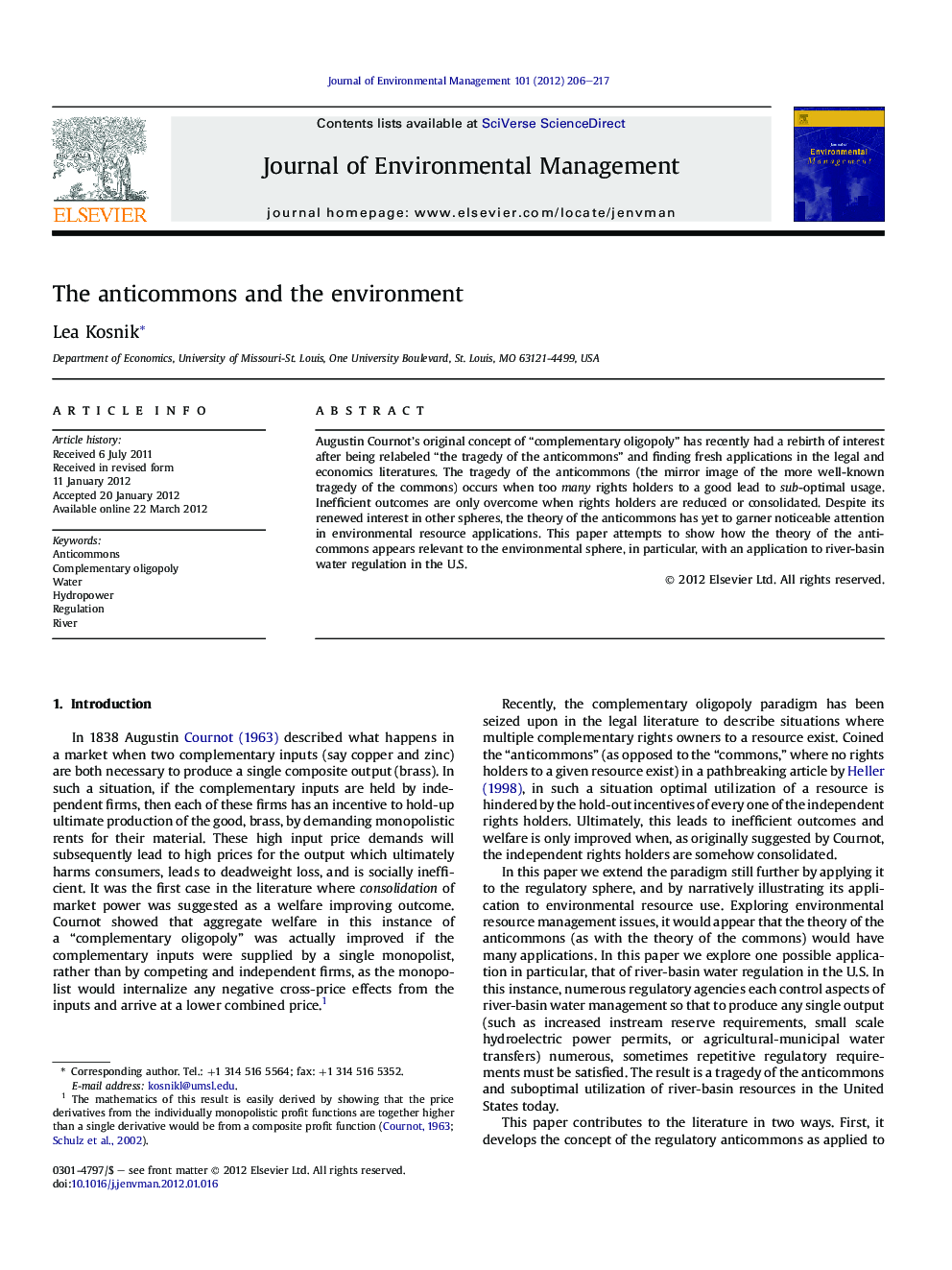| Article ID | Journal | Published Year | Pages | File Type |
|---|---|---|---|---|
| 1056852 | Journal of Environmental Management | 2012 | 12 Pages |
Augustin Cournot's original concept of “complementary oligopoly” has recently had a rebirth of interest after being relabeled “the tragedy of the anticommons” and finding fresh applications in the legal and economics literatures. The tragedy of the anticommons (the mirror image of the more well-known tragedy of the commons) occurs when too many rights holders to a good lead to sub-optimal usage. Inefficient outcomes are only overcome when rights holders are reduced or consolidated. Despite its renewed interest in other spheres, the theory of the anticommons has yet to garner noticeable attention in environmental resource applications. This paper attempts to show how the theory of the anticommons appears relevant to the environmental sphere, in particular, with an application to river-basin water regulation in the U.S.
► The theory of the anticommons is applied to environmental regulation. ► A water management example is given to illustrate the theory of the anticommons. ► Results show that coordination of rights holders would lead to improved outcomes.
